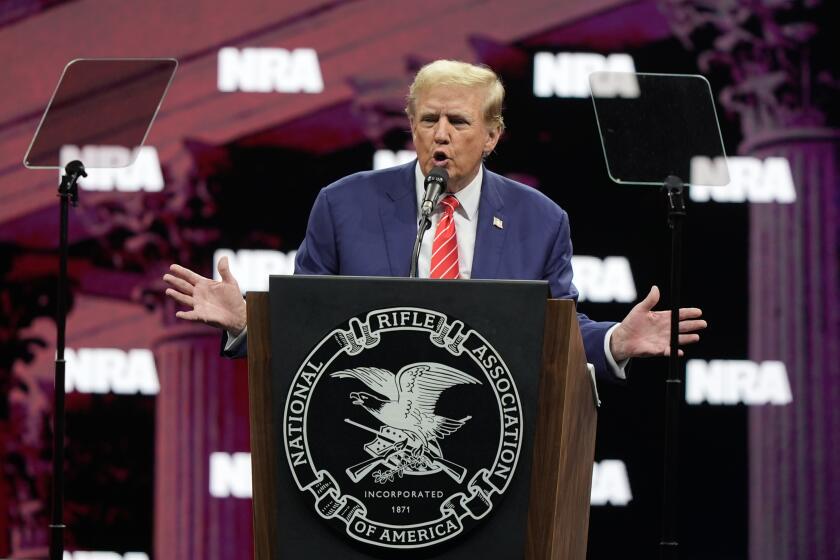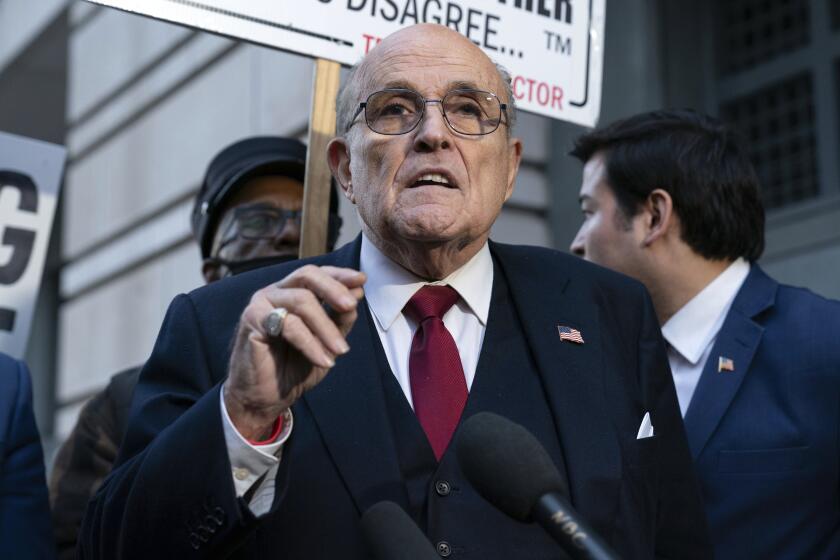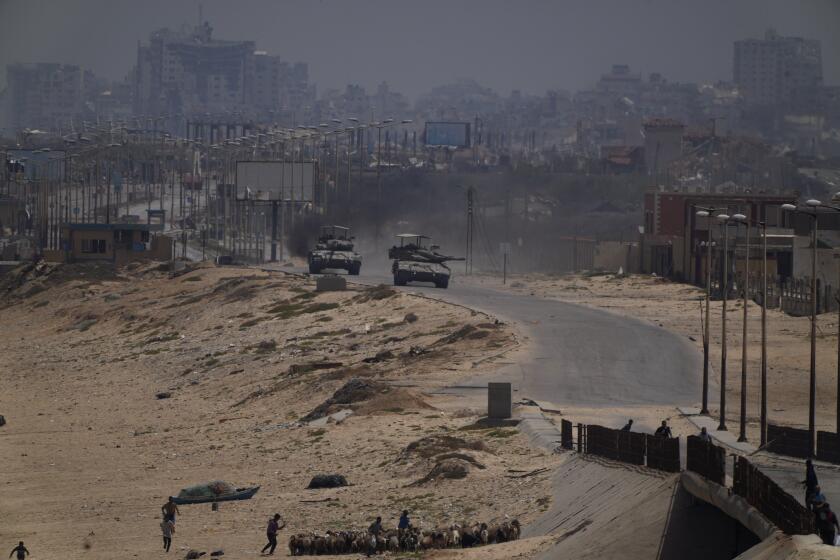China, Russia near accord on Iran sanctions
Russia and China voiced tentative support Monday for a new draft resolution imposing sanctions on Iran for its nuclear program, saying that with a few tweaks, it could be adopted by Christmas.
“It should not take too long,” Russian Ambassador Vitaly Churkin said. “Now our problems with the draft are small ones, not big ones.”
The proposal, drafted by Britain, Germany and France and backed by the United States, would impose penalties on Iran for defying the U.N. Security Council’s order to stop enriching uranium by Aug. 31. It would impose a travel ban and asset freeze on Iranian officials and institutions connected with the country’s nuclear and ballistic missile programs. It would also ban the import of specific bomb-related materials and technology into Iran.
China and Russia objected to the travel ban and asset freeze Monday and sought to clarify the criteria for lifting the sanctions. Chinese Ambassador Wang Guangya called the sanctions on individuals “a humiliation.”
But he said the differences could be bridged with “maybe a few small fixes.”
“We are closer,” he said.
Russia and China have held up action against Iran for months since the flouted August deadline, arguing that the council should work to bring Iran back to the negotiating table and not isolate it by imposing sanctions. Russia has also objected to measures that might affect the construction and fuel supply for an $800-million light-water reactor it is building at Bushehr in southwestern Iran.
The uranium enrichment process can produce fuel for nuclear power plants or for nuclear weapons, and Iran insists it is pursuing nuclear technology only for power generation. The U.S. and other countries believe the research will be applied toward making bombs.
At Russia’s request, the new version of the resolution allows the Bushehr project to continue, and it narrows the banned items to the most dangerous bomb-building technology and delivery systems, from a much broader list that included many dual-use goods. The Russian ambassador said that, with the changes, he would actively work toward adopting the resolution.
“The big change is that they essentially have accepted our concepts,” Churkin said. “It is not supposed to be a punitive resolution. It is supposed to be a resolution to make sure that Iran does not step over the bounds in its nuclear program.”
The U.S. and Western European sponsors feel unanimous agreement on the resolution sends the strongest message to Iran, and they say that as soon as Iran suspends enrichment, the sanctions will be lifted. But the message is clear that for now, patience with Iran has run out.
“It has been 3 1/2 months that we have held the door open,” German Ambassador Thomas Matussek said. Months after Iran rejected a July package of incentives to halt enrichment and continue talks, then ignored the August deadline, he said, European negotiators concluded that “there is no sense to go any further and we have to do what we announced we would do in Resolution 1696, namely to go to the next step.”
Until it halts enrichment and explains plutonium found in a recent inspection, among other questions, Iran remains suspect, Western diplomats say.
“Iran for 14 years has concealed its activities and thus has created mistrust with the international community,” French Ambassador Jean-Marc de la Sabliere said. “When we asked all together for Iran to suspend enrichment-related activities, we asked Iran to show that we could trust it again.”
*
More to Read
Start your day right
Sign up for Essential California for news, features and recommendations from the L.A. Times and beyond in your inbox six days a week.
You may occasionally receive promotional content from the Los Angeles Times.






